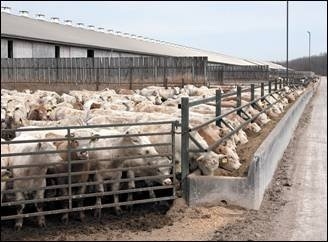
Features
Associations
Business/Policy
Manure Application
Manure Management
Programs Grants & Awards
United States
Manure Happens: A public education campaign
March 22, 2018 by Manure Manager Magazine

Annapolis, MD – With the spring planting season drawing near, the Maryland Department of Agriculture has launched its 2018 “Manure Happens” public education campaign to help citizens understand how and why farmers recycle manure as a natural crop fertilizer and soil conditioner.
The 2018 campaign includes information on how farmers using different types of farming practices apply manure to their fields, along with the with the steps they must take to protect water quality in local streams, rivers and the Chesapeake Bay. The ads will run in local newspapers, websites, and social media throughout the month of March.
“Today’s consumers want to know everything about how their food is produced, including the environmental impacts of production practices,” said Maryland Secretary of Agriculture Joe Bartenfelder. “The ‘Manure Happens’ campaign aims to address any concerns the public may have regarding the use of manure as a fertilizer. In upcoming weeks, you will start see—and smell—farmers spreading manure on their fields when conditions are right for spring planting. Please be considerate, and remember to share the road with our farmers when driving in farm country.”
Farmers using conventional farming techniques till manure into the soil. This improves nutrient retention and reduces odors for nearby neighbors. Farmers who have switched to no-till farming practices to reduce erosion and re-build their soil’s health, grow their crops without disturbing the soil. These farmers apply manure to the surface of the soil and are required to install additional protections like 35-foot buffers to protect local streams from runoff.
Maryland’s Nutrient Management Regulations prohibit farmers from spreading manure on their fields in winter or when the ground is frozen.
March 1 is the first opportunity for farmers to recycle manure generated over the winter as a crop fertilizer. To further protect water resources, Maryland farmers are required to incorporate manure into the soil within 48 hours if they are not using no-till farming practices.
The department provides grants to farmers who want to try the latest liquid manure “injection” equipment. Injecting manure into the soil is more expensive than broadcasting manure, but has shown to be compatible with no-till cropping systems. In addition, Maryland’s Phosphorus Management Tool (PMT) regulations are being phased in over the next several years to help farmers who use manure as a crop fertilizer protect waterways from phosphorus runoff.
The public education ads direct visitors to the department’s “Manure Happens” website at: mda.maryland.gov/manure.
In addition to providing citizens with information on how farmers recycle manure resources, the website offers resources for farmers who currently use commercial fertilizers and are considering making the switch to manure and farmers who sell manure resources as part of their farm’s business model.
The page provides links to additional resources available for farmers, including grants to transport poultry litter and manure, tax credits, technical guidance and scientific research on the benefits of manure as a crop fertilizer and soil amendment. In addition, the website includes links to Maryland’s nutrient management regulations and spotlights farmers who use manure as a valuable resource.
The department’s 2018 educational advertising campaign includes three ads with different themes. The Odoriferous ad focuses on ways farmers work to reduce odors while spreading manure.
The Style Squad ad discusses the various ways farmers work to keep manure away from waterways. In addition, the campaign’s namesake ad, Manure Happens has been updated with new imagery.